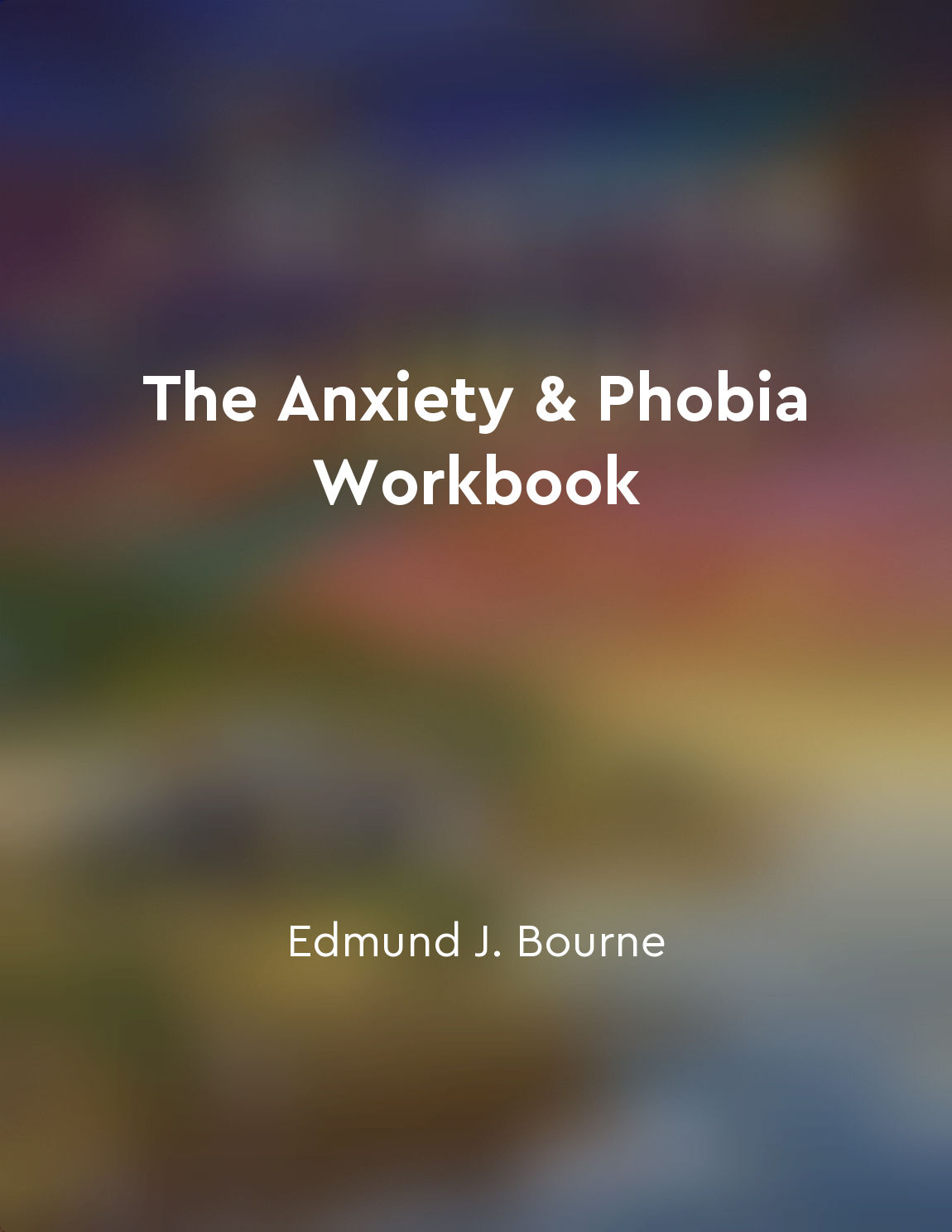Audio available in app
Cognitive therapy aims to change negative thought patterns from "summary" of Cognitive Therapy of Anxiety Disorders by David A. Clark,Aaron T. Beck
Cognitive therapy is grounded in the belief that our thoughts influence our emotions and behaviors. This approach emphasizes identifying and challenging negative thought patterns that contribute to anxiety disorders. By recognizing and addressing these distorted beliefs, individuals can learn to replace them with more realistic and balanced thoughts. The goal of cognitive therapy is to help individuals develop a greater awareness of their thoughts and the impact they have on their feelings of anxiety. This process involves examining the evidence for and against these thoughts, as well as considering alternative perspectives. By engaging in this cognitive restructuring, individuals can begin to shift their thinking towards a more positive and adaptive outlook. One key aspect of cognitive therapy is the identification of cognitive distortions, or errors in thinking that ...Similar Posts

Cultivate hobbies and interests for fulfillment
Engaging in hobbies and interests is a key ingredient in living a fulfilling and meaningful life. When we find activities that ...

Optimists view negative events as temporary, specific, and external
Optimists tend to have a unique way of interpreting negative events, seeing them as fleeting rather than permanent. Instead of ...

Monitoring our progress can help us stay on track with changing negative thoughts
As we work on changing our negative thoughts, it is important to keep track of our progress. By monitoring how we are doing ove...

Accept what you cannot change
The concept of accepting what you cannot change is a fundamental principle in the quest for a worry-free life. It is a simple y...

Enhancing decisionmaking abilities
Improving our ability to make decisions is crucial for navigating life's challenges and complexities. Decision-making involves ...

Learning to accept uncertainty can ease anxiety symptoms
Uncertainty is a common trigger for anxiety. Many people who struggle with anxiety have a deep-seated need for certainty and co...

Seeking professional help is a valid choice for severe anxiety cases
When anxiety becomes severe, it can be overwhelming and debilitating. You may find yourself unable to function in your daily li...
Enhancing coping skills is essential for managing anxiety symptoms
To effectively manage anxiety symptoms, it is crucial to develop and enhance coping skills. Coping skills are the strategies an...

Cognitive distortions can be identified and corrected through cognitive restructuring
Cognitive distortions are patterns of negative thinking that can lead to feelings of pessimism and hopelessness. These distorti...
